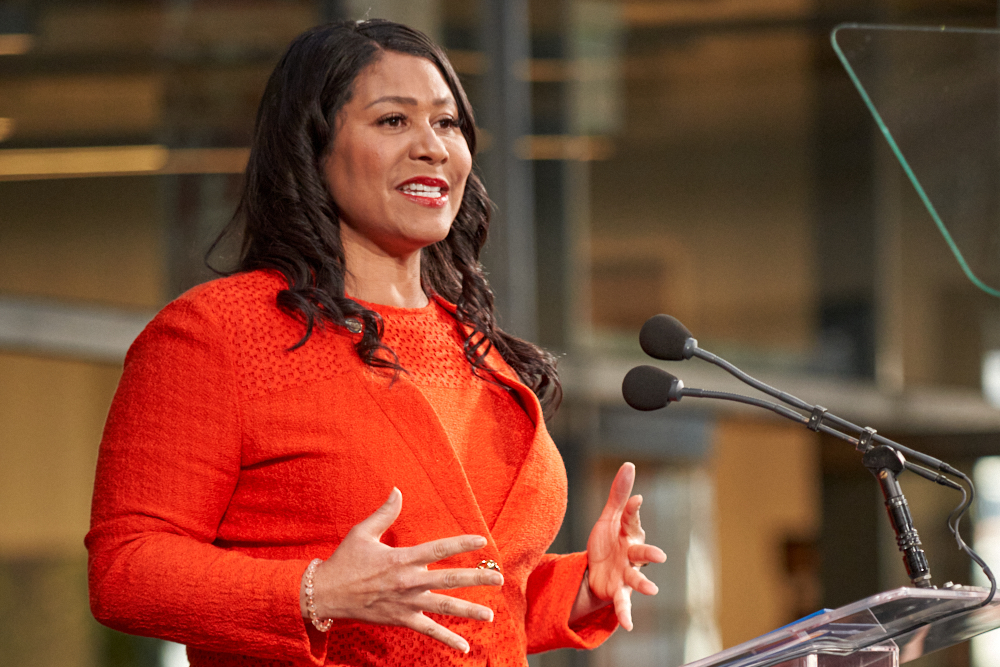The committee charged with implementing the city’s Housing Stability Fund has issued a series of recommendations for the 2023-24 budget that sets up a direct confrontation with the Mayor’s Office over affordable housing money.
The committee calls for spending $85 million to buy land, construct new social housing, help seniors and people with disabilities, and upgrade and repair existing affordable housing.

That money comes from Prop. I, the tax on high-end real-estate sales that the voters approved in 2020. The supes passed legislation setting that money aside for affordable housing and created the oversight committee to recommend how to allocate it.
But Mayor London Breed has so far refused to spend the money on housing, instead putting it into the General Fund so it can go for things like increased policing.
Sups. Connie Chan and Dean Preston have called for a hearing on the recommendations, and since Chan chairs the Budget and Appropriations Committee, she will have a lot of influence over the implementation of the plan.
In fact, Chan will be in a position to tell the Mayor’s Office that the days of ignoring the intent of Prop. I are over, and that any budget the board approves will have to include spending that reflects the intent of the voters and the unanimous Board of Supes.
The spending, the panel says, is essential if San Francisco is going to meet the state mandates for housing—and fulfill its own Housing Element:
San Francisco approved its 2023-2030 Housing Element earlier this year, with the goal of building 82,069 housing units over the next eight years, an unprecedented amount of construction. Of those 82,000 units, 20,867 must be very low-income units (affordable for households below 50% of the Area Median Income), 12,014 must be low-income units (between 50-80% AMI), and 13,717 must be moderate-income workforce units (80-120% AMI), covering the full range of social housing units identified in the Housing Stability Fund. In order to meet these Housing Element targets, the plan states: “The City should utilize the two new sources of funding, gross receipts tax, and the Real Estate Transfer tax, to partially meet our funding gap, and consider new funding sources such as a new affordable housing bond, and other sources to meet the gap. … Unless the City, even in lean budget years, consistently commits new Proposition I revenue towards building affordable housing it will fail to meet its stated affordable housing goals.
The panel notes that this is a perfect time for the city to be buying sites for future social housing:
The present slowdown in the real estate market creates a rare opportunity to acquire additional sites and reduce future housing costs. According to the Office of the Controller, the price of unentitled land is at a ten-year low, at about $60,000/unit – almost a third less than its peak five years ago. Investing in land now will lower costs in the long run, and can secure optimal locations for working families and seniors. Acquiring sites from the private market is one necessary part of a comprehensive affordable housing strategy.
The Prop. I tax has already brought $250 million into the city coffers, only a fraction of which has gone to social housing. The Controller’s Office suggests that this year’s revenue will be closer to $95 million, and since the mayor has asked for cuts in every department, the commitee reduced that by about 10 percent.
The proposal:
$30 million for land acquisition for new construction.
$30 million to build new social housing.
$18 million for upgrades to existing housing.
$2 million to support housing innovation strategies.
$5 million to help seniors and people with disabilities pay the rent.
It’s an essential element of San Francisco’s future, supporters say. From a press release from Preston’s Office:
“San Francisco moving away from a place that houses a working class to a place that only houses the wealthy class is not sustainable or moral,” said Oraiu Amoni, Workers Rights Program Director at Jobs with Justice San Francisco. “The Mayor and Board of Supervisors should approve the recommendations set forth by the Housing Stability Fund Oversight Board and ensure that the funds are actually spent quickly and efficiently.”
Of course, Breed is going to say that there’s no money for anything (except the cops). But when real-estate values are dropping (the developer of the much-touted One Oak project just defaulted and gave the site back to the lender), it makes perfect sense to start buying property for social housing.
It’s going to be a brutal budget season, but this one ought to be easy.




